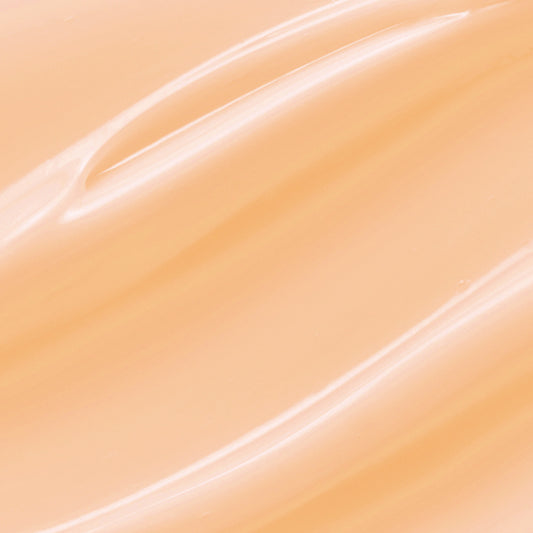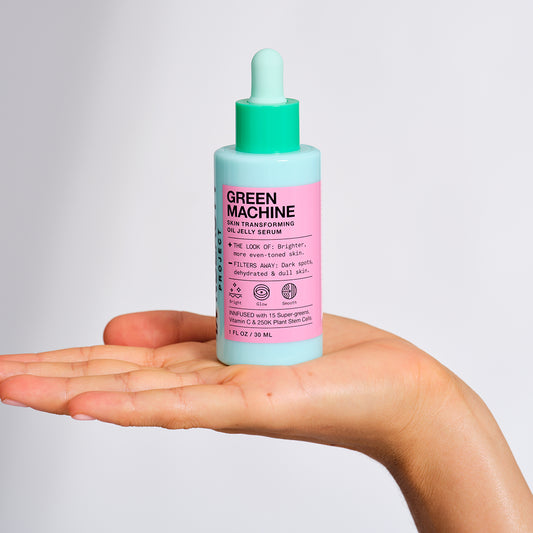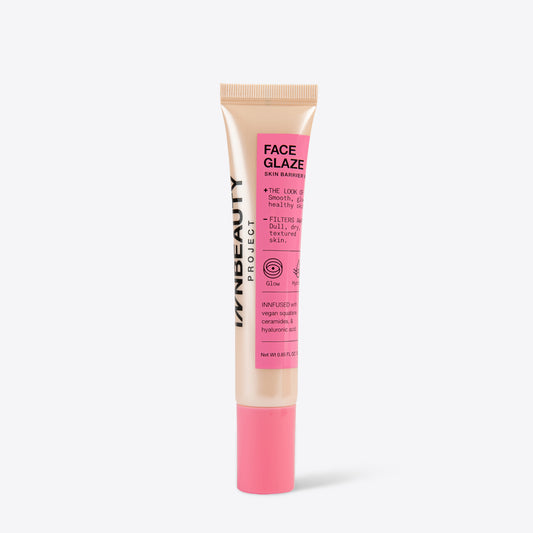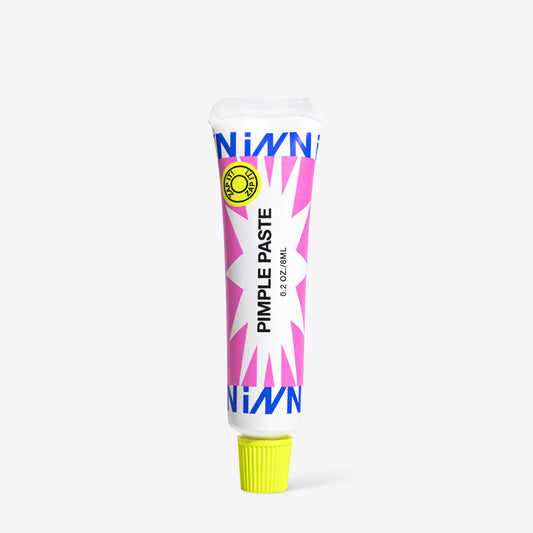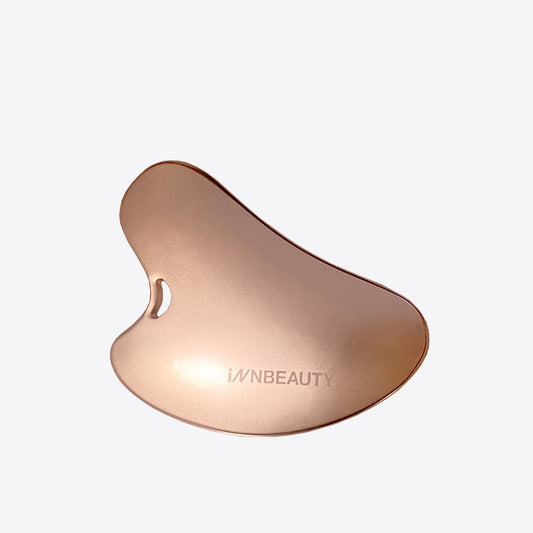Anti-aging skincare routines often stress the importance of serums, actives, and treatments, but there’s one important product — that you probably already own — that’s the true key to slowing down the appearance of fine lines, wrinkles, and other common markers of aging: sunscreen.
"The sun exposes you to both UVB (think: 'B for burn') and UVA (think: 'A for aging') rays, as well as blue light. Exposure to these rays can lead to a breakdown in collagen and elastin, which can cause sagging skin and wrinkles. Using a daily broad-spectrum SPF will help protect your skin from both UVA and UVB rays," explains INNBEAUTY Project Co-Founder and Head of Formulation Innovation Jen Shane.
Excessive sun exposure accelerates the aging of skin by damaging collagen fibers, depleting the level of vitamin A in your skin, and increasing the risk of skin cancers. Sunscreen helps defend against those damaging effects, making it one of the most important parts of your skincare routine. Here’s what else you need to know about sunscreen as your ultimate defense against aging, as well as how to pick the best one for you and how to incorporate it into your skincare routine.
What does it mean when we talk about aging in terms of the skin?
Getting older affects all parts of the body, including the skin, and you may start to see some changes as you get older. Common changes that often occur include thinning, sagging, and dryness, as well as the emergence of wrinkles, age spots, and broken blood vessels.
While skin aging is inevitable, living a healthy lifestyle will mitigate those skin changes: exercising regularly, eating healthy foods, staying hydrated, and having a robust skincare routine that includes the daily use of sunscreen.
How does sunscreen help protect against skin aging?
The importance of sunscreen lies in its ability to help protect your skin from the ultraviolet radiation that comes from the sun to the Earth in the form of radiation through UVA and UVB rays (the sun also produces UVC rays, but they don’t reach the Earth’s surface).
Every time you spend time in the sun without protection, the sun's rays impact your skin, and that exposure can lead to damage, which appears on the skin as sunburn, discoloration, hyperpigmentation, and loss of firmness and wrinkles. UVA and UVB rays can also lead to skin cancer, which is the most common form of skin cancer in the United States.
What factors should one consider when choosing a sunscreen for daily use?
There are many factors you should consider when it comes to picking a sunscreen for yourself, including SPF level, formulation, and finish.
Sunscreens come in mineral and chemical formulations. Chemical sunscreen formulas include ingredients like octinoxate, octisalate, oxybenzone and avobenzone, and they work by absorbing UVA and UVB rays and converting them into heat that flashes off the skin. Mineral, or physical, sunscreens reflect and scatter UV lights, and they usually contain zinc oxide and titanium dioxide. Because heat can sometimes aggravate the skin, mineral sunscreens are often seen as better options for those with more sensitive skin.
We know how hard it is to find a SPF that works for your skin — and one that you’ll actually want to use everyday. So, we formulated Mineral Sun Glow Broad Spectrum SPF 43 PA+++ to be different.
Mineral Sun Glow SPF 43 PA+++ is a mineral sunscreen that contains a high performance cocktail formula that includes non-nano Zinc Oxide to provide broad spectrum UVA & UVB protection. It also contains oil-soluble Vitamin C, antioxidants, and a peptide complex to protect against pollution, blue light, and brighten and hydrate the skin.
“Mineral Sun Glow SPF 43 PA+++ offers all 4 types of protection: UVA, UVB, blue light, & antioxidants! It took us 3 years to create a mineral SPF that didn't feel like a mineral SPF (it's not thick, greasy or hard to blend in). It's also non-comedogenic which means it is clinically proven to be safe for acne prone skin and will not clog pores!” Shane says.
Sunscreen SPF (sun protection factor) generally ranges from SPF 15 to SPF 100, with SPF 15 blocking 94% of UVB radiation, and SPF 30 blocking about 97%, making the SPF sweet spot between 30-50.
Finish wise, sunscreens can leave you with a matte or dewy complexion. Personal preference and your skin type will determine which one you should choose, with a matte finish usually working best for oily skin types, while dry and mature skin types will want to opt for the dewy option. Unlike traditional SPFs that dry out the skin, Mineral Sun Glow SPF 43 PA+++ hydrates the skin for 24 hours, keeping it visibly firm and plump while maintaining a weightless texture.
Can sunscreen be used on other parts of the body besides the face and body?
In addition to applying sunscreen on your face and body, there are other areas that are often missed when it comes to sun protection. If you're going to be out in the sun it’s important to swap out your regular lip product and reach for a pick that also includes SPF, like our Sun Balm SPF 30.
Formulated with squalane, jojoba oil, and shea + mango butter, this nourishing mineral formula includes SPF 30 to treat and protect against UVA and UVB rays in three gorgeous, glossy shades. Perfect for those with sensitive skin, this mineral SPF lip treatment is lightweight (never sticky or greasy!) while delivering serious sun protection.
How do you add sunscreen into your skincare routine?
Once you’ve chosen the perfect sunscreen for you, you can seamlessly add it into your existing morning routine:
- Cleanse and moisturize your skin according to your regular skincare routine.
- Time to put on your sunscreen. The SPF of sunscreens is tested on a thickness of two milligrams of product per square centimeter, which equals to half a teaspoon or two finger lengths for your face, and it should be applied at least 30 minutes before you head outside.
- If you wear makeup, you can apply it after sunscreen. If your makeup products also include SPF, that's great! However, do not rely solely on your makeup to provide the level of sun protection that you need to properly shield your skin.
- Go about your day as usual, but remember to reapply your sunscreen every two hours, and more often if you’re sweating or go in the pool or ocean.
The wrap-up
Daily sunscreen usage is one of the best ways to defend and protect your skin against premature aging. UV radiation from the sun can cause sun damage that appears on the skin as hyperpigmentation and wrinkles, and it can lead to skin cancer. Choosing the right sunscreen can defend against this. SPF like our Mineral Sun Glow SPF 43 PA+++ and Sun Balm SPF 30 Mineral Broad Spectrum Lip Balm will protect your skin while also offering other skincare benefits. When adding sunscreen into your daily life, use it as the last step of your skincare routine before moving on to makeup and other steps, and make sure to reapply at a minimum of every two hours.







